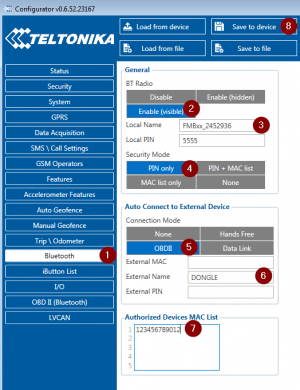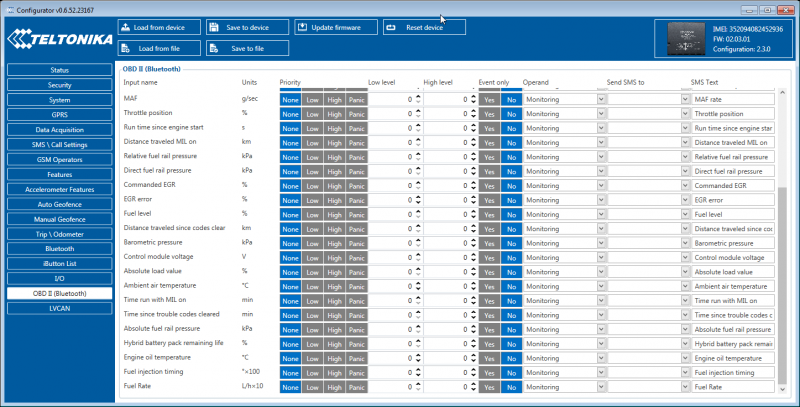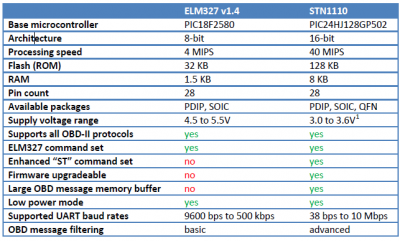Template:FMB1 Bluetooth OBD dongle
Appearance
Bluetooth settings configuration

Following are the instructions on how to easily prepare Bluetooth Dongle connection to the FMB device. First we need to configure FMB device Bluetooth settings. These are the required steps:
- Go to Bluetooth section similarly to as shown in the figure to the right (position 1).
- Turn on BT Radio by pressing Enable (visible) (position 2). "Local name" (position 3) will automatically be "FMB1YX_last 7 imei digits", you can leave it or type your own name.
- Set Security Mode (position 4) to PIN only or None (you could select PIN + MAC list or MAC list only security mode but in this case you need to type external device MAC address in Authorized Devices MAC List (position 7).
- Set connection mode to OBDII (position 5).
- Set External Name as your Bluetooth OBD II device name for proper device identification and connection to it. In this example OBDII device name is "DONGLE", at least 2 characters are needed to recognize it and connect to it. For better and faster adapter identification in network you could enter a full device name. You could check your OBDII adapter Bluetooth name by scanning nearby Bluetooth devices using a mobile phone or a computer with Bluetooth adapter.
- Go to OBD II in main menu and select priority and others parameters visible in the following figure.

- After all these steps press Save to device to save configuration (position 8 in the top right hand figure).
- Now you can disconnect FMB device from the configurator.
Connecting to Bluetooth OBD II dongle
After this configuration OBDII dongle can be connected to FMB device. Turn on ignition, then turn on its Bluetooth connection. For pairing follow dongle instructions. OBDII device notification about paired Bluetooth connection depends on the specific model. If you later restart FMB device it will automatically reconnect to this dongle.
Supported Bluetooth OBD II dongles
FMB module works with Bluetooth OBD II dongles which are based on ELM327 or STN1110 chips.
Comparison of these chips is presented in the image below:

